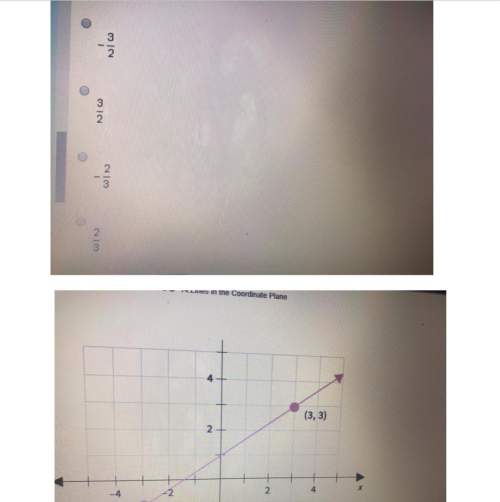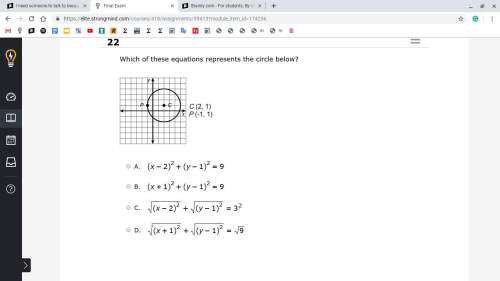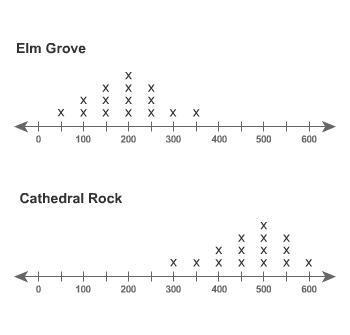1. Identify each statement as always,
sometimes, or never true. Give an
example or counterexa...

Mathematics, 04.01.2021 20:20, fonsworth5
1. Identify each statement as always,
sometimes, or never true. Give an
example or counterexample to support
your answer. (MAPS.912 N-RN.23)
A. The sum of two rational
numbers is rational.
B. The sum of two irrational
numbers is irrational.
C. The sum of a rational and an
irrational number is irrational
D. The product of a nonzero
rational and an irrational number is
irrational
E. The product of two irrationa
numbers is irrational

Answers: 3
Other questions on the subject: Mathematics

Mathematics, 20.06.2019 18:04, Tori122367
Use the distributive property to factor the expression. 15x + 6 a) 2 5 b) − 2 5 c) 3(5x + 2) d) 5(3x + 6)
Answers: 1

Mathematics, 21.06.2019 16:30, wolfygamer14
The angles below are supplementary. what is the value of x? a pair of supplementary angles is shown. one angle measures 7x + 33, and the other angle measures 70. 5.3 8.14 11 14.7
Answers: 1

Mathematics, 21.06.2019 21:00, ja3698198
Circle d circumscribes abc and abe. which statements about the triangles are true? statement i: the perpendicular bisectors of abc intersect at the same point as those of abe. statement ii: the distance from c to d is the same as the distance from d to e. statement iii: bisects cde. statement iv: the angle bisectors of abc intersect at the same point as those of abe. a. i only b. i and ii c. ii and iv d. i and iii e. iii and iv
Answers: 2

Do you know the correct answer?
Questions in other subjects:


Health, 22.09.2020 05:01



Health, 22.09.2020 05:01


Medicine, 22.09.2020 05:01

Mathematics, 22.09.2020 05:01


Mathematics, 22.09.2020 05:01









